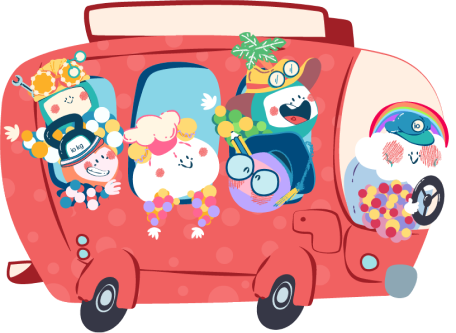Sensory activities are not limited to newborns and babies. Your toddlers can engage in sensory activities as well.
Even though they may not get as many new stimuli, the regular sensory stimulation they get from engaging still strengthens existing neural connections associated with previous sensory activities.
Popular Sensory Activities for Your Toddlers
Simon Says
This popular game is a fun and exciting activity that helps toddlers process auditory stimuli. Aside from just listening to the verbal orders given, toddlers have the additional challenge of analyzing the verbal stimulus before deciding to follow. That’s why this game is so engaging, even for adults.
Scooping things in a sensory bin
Unlike regular sensory bin plays, scooping stuff in a sensory bin adds difficulty levels through the task of scooping alone. Instead of simply putting your hand in the bin and feeling all the stuff inside, scooping materials into the scooper and maintaining balance, so they don’t spill out of the scooper, takes much more refined control. It is a great sensory and training activity for your toddler.
Stacking
Another toddler-appropriate sensory activity is stacking. This particular challenge requires plenty of sensory input and processing. From feeling the weight of the materials you’re stacking to looking out for the subtlest signs of instability, this activity demands quite a bit from your toddler. That’s also what makes it fun and very engaging.
Finger painting
More than the sensation of paint on the skin, finger painting for toddlers is more about the experience of colors, patterns, and mixing. With this activity, your toddler gets first-hand knowledge about the results of blending colors, spreading them thin, or leaving them in clumps and then letting them dry. It’s also an excellent opportunity to introduce shapes, lines, gradients, and many other art concepts.
Gardening
The garden is an excellent source of sensory experiences. Taking care of your plant will give your toddler plenty of sensory activities to learn from. From the planting of the seeds, the watering of the plants, the blooming of flowers, and the picking of fruits, gardening will stimulate your child’s senses and hopefully foster a love for nature.
Significance of Stimulation to the Development of Toddlers
Unlike in the case of newborns and infants, stimulation in toddlers is geared towards reinforcing brain connections more than making new ones, especially if you were keen on providing them plenty of sensory activities when they were smaller.
Stronger neural connections allow faster information transfer and processing, enabling your toddler to react quicker and better.
Benefits of Sensory Activities for Toddlers
Regular stimulation through sensory activities helps toddlers:
- Helps toddlers become more familiar with the world around them.
- Increases reaction time and processing of information.
- Trains muscles involved in gathering more stimuli and those executing responses
- Develops their brain by reinforcing existing neural connections.
- Gains more confidence in themselves.
- Boosts independence.
- Provides an avenue for better communication and expression
- Improves problem-solving skills
Frequently Asked Questions on Sensory Activities for Toddlers
How do you stimulate a toddler?
Your toddler is always rearing to interact with other people and his environment. It doesn’t take much to stimulate him. However, he will almost always prefer a play-type of stimulus, which is not bad. Give him plenty of sensory games, and you’ll be able to provide him with enough stimulation.
How much playtime does a toddler need?
According to childcare experts, toddlers should be able to have at least an hour of free or unstructured play and at least 30 minutes of structured or adult-led play. If they are willing to engage in more hours of play, then just let them. Play is the number one source of learning for toddlers, after all.
Why do toddlers need sensory toys?
Sensory toys provide toddlers with constant sensory experiences. They help your toddler learn about real-world environments, process cause-and-effect, and gather experiences in how their actions influence the things around them.
Sensory toys solidify and enforce concepts learned from previous sensory activities through repetitions and first-hand experiences.
Sensory toys also calm your toddler and improve their confidence.
What are the best practices for sensory play?
When facilitating sensory play for your kids, you may want to consider these best practices:
- Keep things simple because that’s how kids play. Elaborate setups might just confuse your kids instead of making plays more fun for them.
- Expect a mess. Your toddlers play without rules and have minimal regard for anything but fun, so cleanliness will not be something they consider.
- Prepare old sheets over your toddler’s play area before laying down all the sensory materials for him. This will save you plenty of time and hard work in cleaning.
- If possible, do your sensory play outside. Not only will it be easier to clean, but it will add more sensory stimuli for them to process.
- Involve your toddlers in the cleanup process.
Do toddlers get overstimulated?
Yes, toddlers can get overstimulated, just like babies. Situations where your little ones are having too many stimuli to process—loud background noise or too many activities happening simultaneously—can overstimulate your little ones and make them cry or become fuzzy. Prevent this from happening by keeping your activities simple and looking out for signs of overstimulation.







